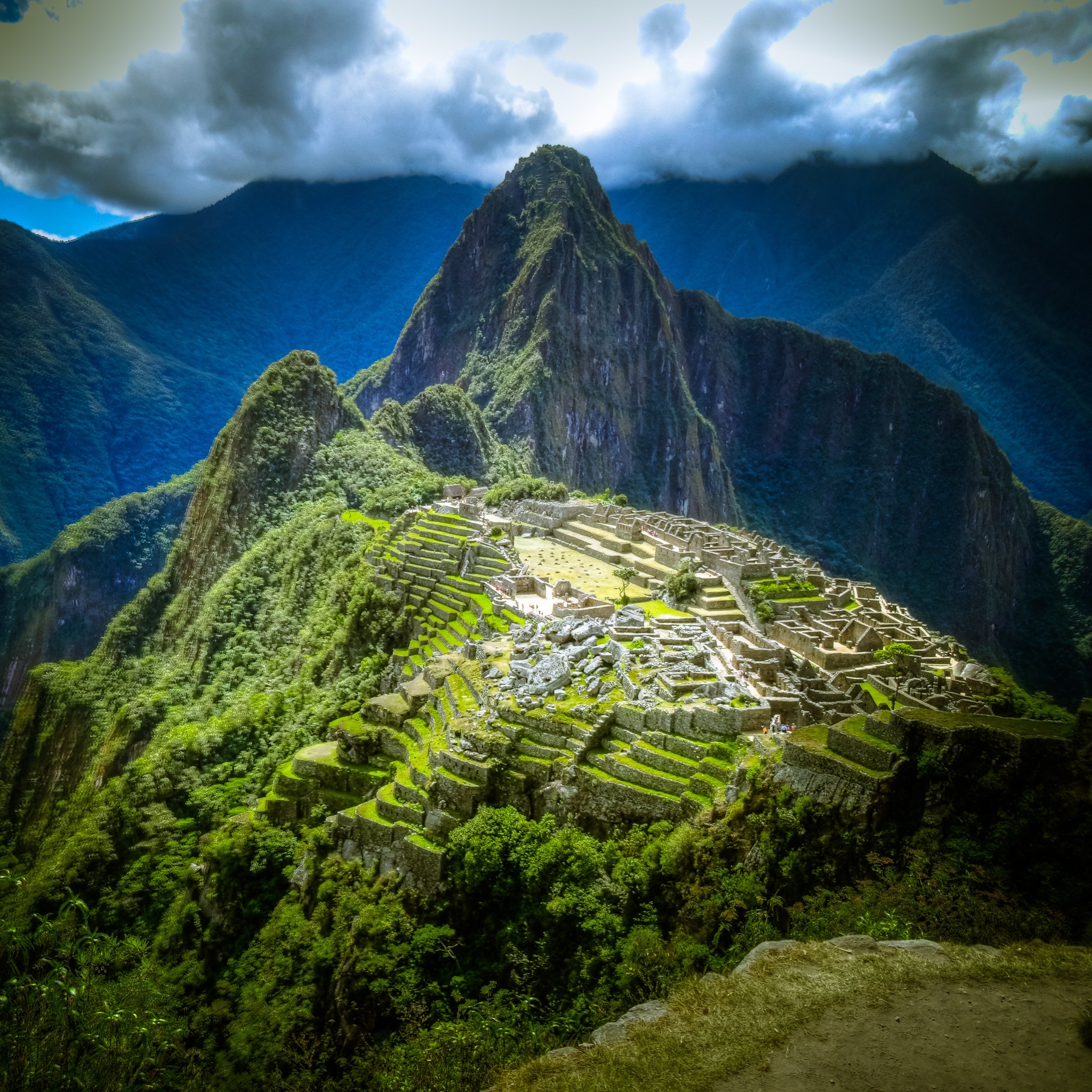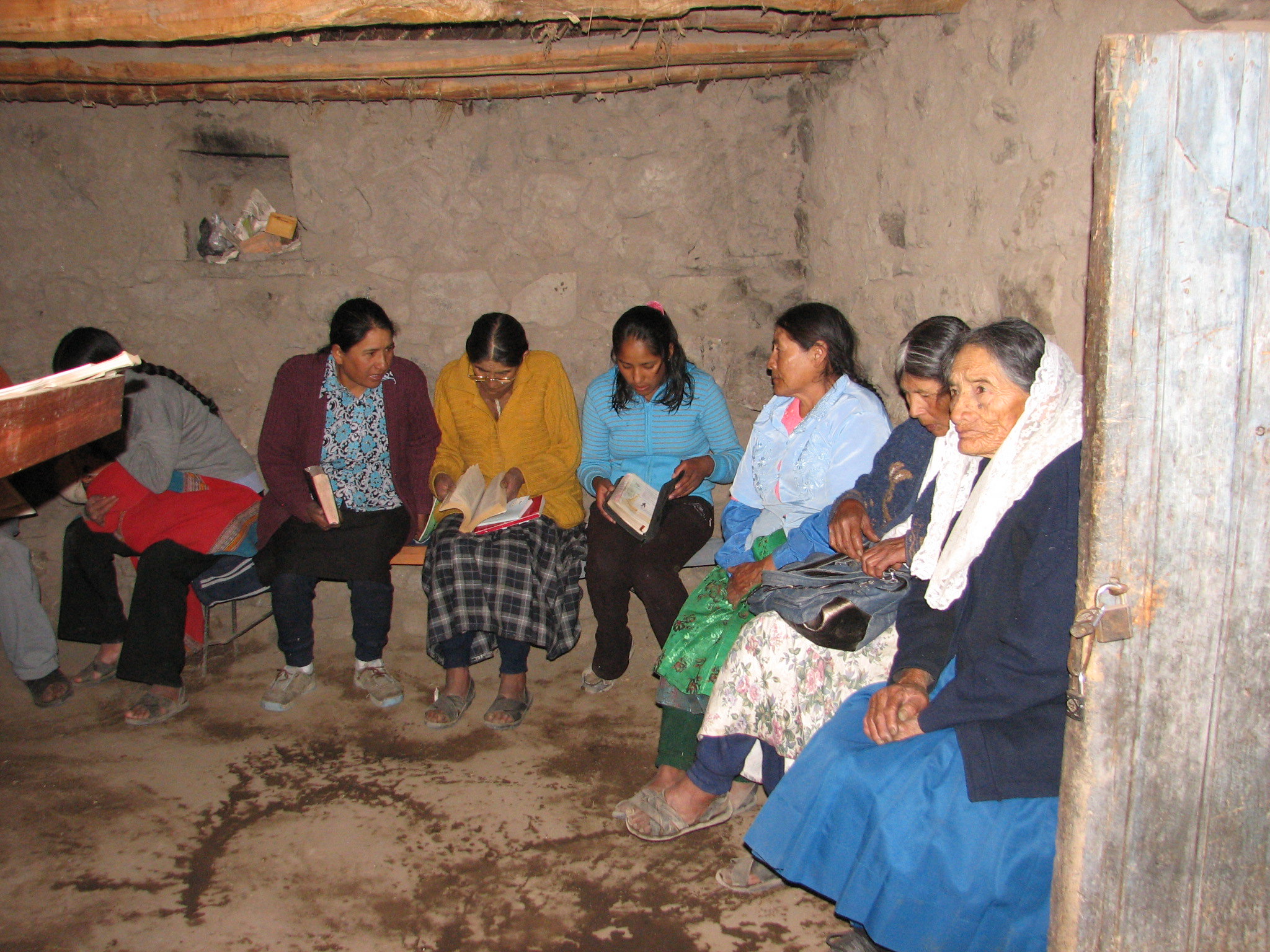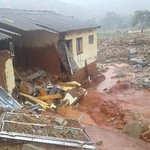Against all odds
By Stephan and Corné Walters, SIM Peru missionaries | Peru in South America

Peru is a mountainous country, made famous by its soaring, rocky peaks and impossibly green cities planted right among them.
In a mountain village only an hour away from Tomepampa, a handful of Quechua believers were eagerly awaiting our arrival for their Sunday morning services. The small group of Christians in Locrohuancca (LO-KRU-WAN-KA) had seen much trouble in the past four years. Two had lost their husbands, both of them church leaders. They had no Bible teacher to guide them through God’s Word, and no mature Christian to lead them. Suffering much for their faith, these believers were branded by their neighbors as trash and treated accordingly, just like Christians are in so many other villages in the Andes.
Hoping to encourage them, we had set out at seven o’clock in the morning, accompanied by an Australian family who was there doing three months of outreach work. Locrohuancca is 3,200 metres above sea level in the Cotahuasi Canyon. For the most part, the way there is a narrow dirt road winding through a beautiful but treacherous mountain pass. We were in the midst of a very heavy rainy season, and with it always came landslides and rock-falls. Heading out, we hoped and prayed that we would get there without any mishaps. It wasn’t very long before we encountered the first road block. Armed with a shovel and a crowbar, all of us (six adults and our two children) got out to clear the road of fallen rocks and gravel. Pretty soon, though, we realised that the closer we got to Locrohuancca, the more rock-falls we encountered, and the harder it became to clear the road. On one occasion, we were only able to clear the rocks on the side of the road where the cliff drops down very steeply. As I drove through the clearing, the left tyres were on the edge of the drop-off.

It was now getting late for our 10 a.m. meeting with the believers, and as we came around a curve, we saw what we had feared. The road was blocked by a massive boulder, and there was no way around it; we would be walking the last one and a half kilometres. An hour late might still be considered “on time” in this culture, but we were now 90 minutes late. We started to wonder whether the believers would still be waiting for us, or if they would have gone to their fields. Their day is so busy already, and getting up at 4 a.m. seven days a week is normal. The time they are able to set aside for these meetings on every other Sunday is done by working much harder during the week and making many sacrifices. My heart was sad thinking that we might not get to encourage our Quechua friends.
Finally in the village, we walked to Lucha’s house, but no one awaited us there. Continuing to the worn church building, I expected that everybody there would be gone, too.
Instead, I heard voices as I approached, and I saw some people inside the dark, mud-brick building. They were all on their knees, a dozen believers engaged in serious prayer. In this village where they were insulted and mocked daily and abused verbally and emotionally for their faith, these believers were talking to the God who cares for them.
Hermana Flor looked up with they had finished praying, and when she saw me, her eyes were filled with tears.
“You came!” she said. “God is so good. He sent you. We thought you and your family were not coming, but we prayed to God, and He did the impossible. He is faithful.”

Stephan and Corné Walters are South Africans working in evangelism, discipleship, and children’s ministries. They have served in Peru since 2009.
Could God be calling you to encourage persecuted people like the believers of Locrohuancca? Or would you partner with us in prayer and giving to ministries like the Walters? Contact us!
Related stories

Uruguay immigrants are putting down New Roots Duplicate 1
Uruguay has a large immigrant population, and students from the vocational programme at the Biblical Seminary of Uruguay, a partner of SIM, realised many foreigners were finding it difficult to adjust to their new home. New Roots ministry was formed to assist these newcomers!
Zimbabwe new stories 2 only en-gb es
Short Summary
Zimbabwe new stories
short summary

